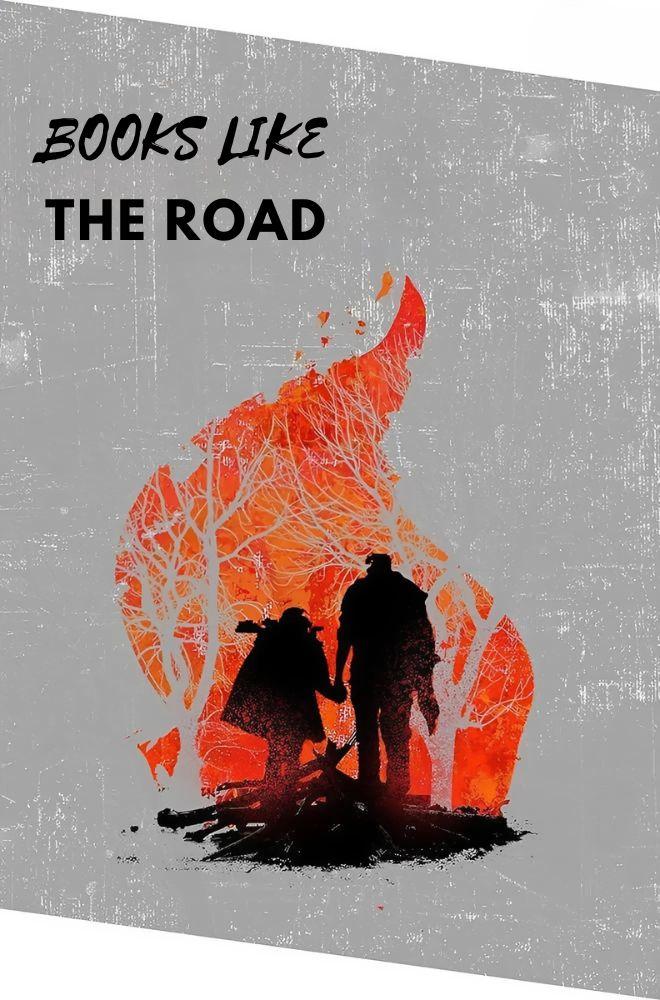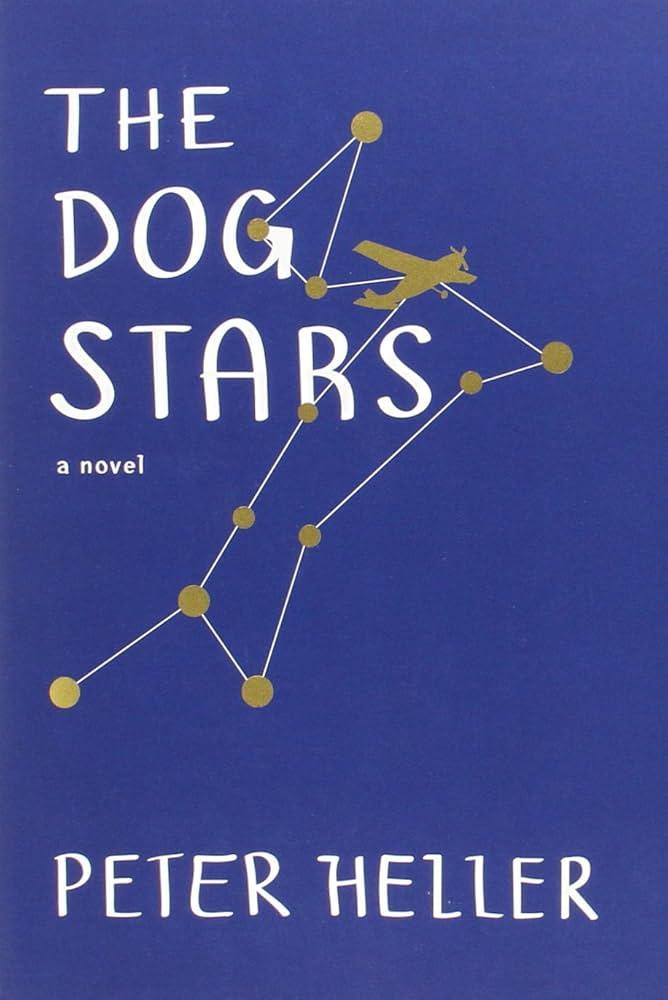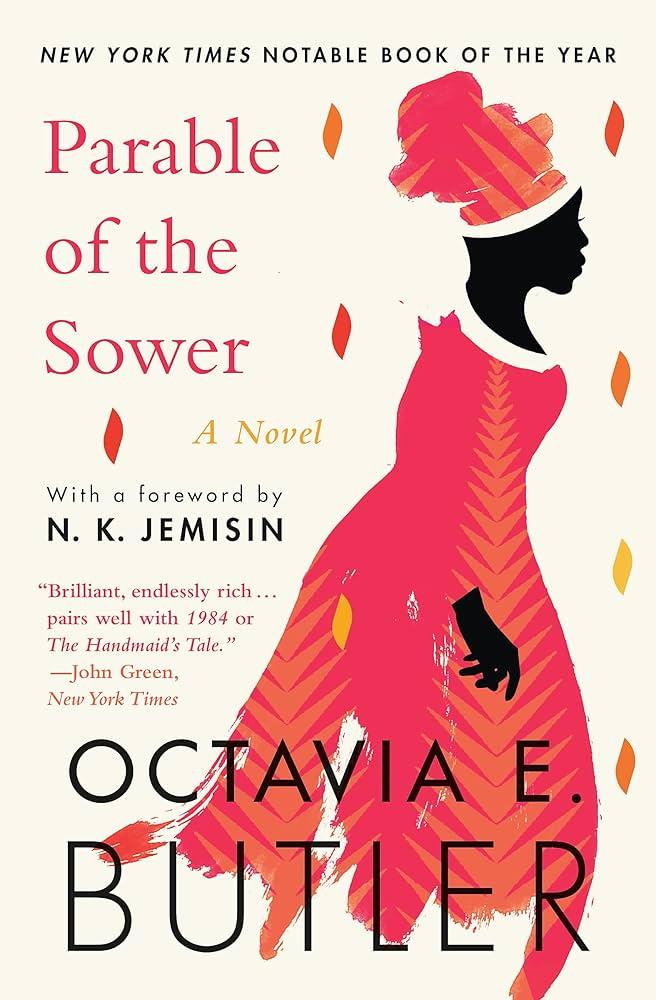Discover books like The Road that dive into bleak, post-apocalyptic worlds. Explore gripping tales of survival, human connection, and the fragile nature of civilization.
Cormac McCarthy’s The Road stands as one of the most hauntingly bleak yet beautifully written novels of modern times. Its powerful depiction of a father and son navigating a devastated, post-apocalyptic landscape has left a lasting impression on readers worldwide. For those who are captivated by such raw emotional intensity and stark prose, there are the top 9 best books like The Road. Whether it’s the end of civilization, the bond between family members, or the moral dilemmas of survival, these books may resonate deeply.

Before diving into similar reads, it's crucial to understand what makes The Road so impactful. McCarthy’s minimalistic writing style strips away the unnecessary, leaving readers with a raw, unflinching view of humanity.
The novel doesn't focus on what caused the apocalypse but instead highlights the struggles of daily survival and the unwavering love between father and son. Themes of hope, morality, and the fragility of civilization are woven into every sentence.
Looking for The Road? Discover 9 gripping, post-apocalyptic novels that explore survival, humanity, and hope in bleak landscapes.

The Dog Stars follows Hig, a survivor of a flu pandemic that has wiped out much of humanity. Living in an abandoned airplane hangar with his dog and a gruff gunman, Hig grapples with loneliness, grief, and the desire for connection.
The novel beautifully balances moments of hope with the harsh reality of a post-apocalyptic world. The bond between Hig and his dog echoes the strong connection seen in The Road between the father and son.
Though more lyrical in style than McCarthy's terse prose, The Dog Stars shares a similar atmosphere of survival and emotional depth. It’s perfect for readers who crave introspective journeys in a world gone cold.
While Station Eleven deals with the aftermath of a global pandemic, the tone is less bleak than The Road. The novel explores the interconnected lives of several characters, both before and after the collapse of civilization.
One of the most captivating aspects of Station Eleven is its meditation on the value of art and culture, even in the face of destruction.
The novel asks whether humanity can truly survive without the stories, music, and art that once defined it. This focus on hope, meaning, and the possibility of rebuilding stands in contrast to the more relentless despair of The Road. Yet, Station Eleven still captures that same eerie sense of loss and longing for a world that once was.

Set in a future where climate change and economic collapse have driven society into chaos, The Parable of the Sower centers on Lauren Olamina, a young woman with hyperempathy, meaning she feels the pain and pleasure of others. As her world crumbles, Lauren embarks on a dangerous journey to create a new belief system and community.
Butler’s novel is an intense reflection on human resilience, survival, and the power of belief. Like The Road, it tackles the darkness of human nature but offers glimpses of hope, driven by the protagonist’s unwavering vision of a better future.
The relationship between Lauren and her followers bears some resemblance to the bond seen in McCarthy’s novel, grounded in the idea of protection and trust in a broken world.
Margaret Atwood’s Oryx and Crake presents a dystopian future that feels eerily plausible. The novel follows Snowman, one of the last humans alive after a genetic engineering disaster.
Through a series of flashbacks, readers learn about the twisted friendship between Snowman and Crake, the genius behind the world's downfall, and Oryx, a mysterious woman who complicates their lives.
Oryx and Crake explores themes of scientific hubris, environmental collapse, and moral ambiguity. While McCarthy’s The Road focuses on survival and familial bonds, Oryx and Crake examines how humanity can bring about its destruction through greed and the pursuit of knowledge. It’s a thought-provoking read for those who enjoyed the introspective, philosophical undertones of The Road.
While not post-apocalyptic in the traditional sense, The Left Hand of Darkness explores themes of survival, isolation, and human connection in an alien landscape.
The novel follows Genly Ai, an envoy to a distant planet where the inhabitants can change gender. Genly's mission to build trust and alliances is complicated by cultural misunderstandings and the brutal environment of the planet.
Like The Road, Le Guin's novel delves deeply into the complexities of human relationships, particularly those forged in extreme circumstances. Both novels highlight the importance of understanding and empathy in the face of unimaginable hardships.
If you’re looking for a more sprawling, epic take on the post-apocalyptic genre, Stephen King’s The Stand is a must-read. After a virus wipes out most of the world’s population, survivors are drawn to two factions: one led by the benevolent Mother Abagail, and the other by the malevolent Randall Flagg. As humanity’s fate hangs in the balance, King explores themes of good vs. evil, community, and morality.
While The Stand is much more expansive and supernatural than The Road, the underlying themes of survival, morality, and the remnants of civilization will feel familiar to McCarthy’s readers. King's storytelling, although more fantastical, shares McCarthy's fascination with the extremes of human nature.
Set thousands of years after a nuclear war has obliterated civilization, Riddley Walker follows its titular character as he navigates the ruins of a society that has regressed to a primitive state. Written in a unique, fractured version of English, the novel presents readers with a world where knowledge has been lost, and myths have taken the place of history.
Riddley Walker is a challenging but rewarding read. Like The Road, it’s a novel about survival in a world stripped of order and structure, and it delves into the tension between preserving the past and moving forward. The novel’s unique style mirrors the fragmented world it depicts, offering a visceral, immersive reading experience.
Blindness imagines a society where a sudden epidemic of blindness plunges the world into chaos. Society collapses as fear, violence, and madness take over, leaving a small group of individuals struggling to survive and retain their humanity. Saramago’s prose is dense and meandering, but his portrayal of human fragility and resilience in the face of disaster echoes many of the themes in The Road.
Like McCarthy, Saramago examines how quickly the veneer of civilization can crumble, revealing the primal instincts that lie beneath. Blindness is both a cautionary tale and a meditation on the essential goodness—or lack thereof—of human nature, making it an excellent companion among books similar to The Road.
For fans of books like The Road, A Canticle for Leibowitz offers a profound and moving exploration of a future where humanity repeatedly falls and rises. Set in a post-apocalyptic world ravaged by nuclear war, the novel follows monks who preserve the remnants of human knowledge.
The Road and A Canticle for Leibowitz both consider how humanity copes in the face of annihilation. Miller's novel delves into the cyclical nature of history and the role of faith in preserving the past, making it a thought-provoking companion to McCarthy’s work.
Books like The Road capture the fragility of life and the human spirit in the face of unimaginable adversity. Whether it's the quiet despair of a desolate world, the moral dilemmas of survival, or the profound relationships forged in the darkest of times, each of the books listed above echoes the themes and tone of The Road. Readers drawn to McCarthy’s stark, minimalist prose and the emotional weight of his storytelling will find much to appreciate in these similarly evocative tales.